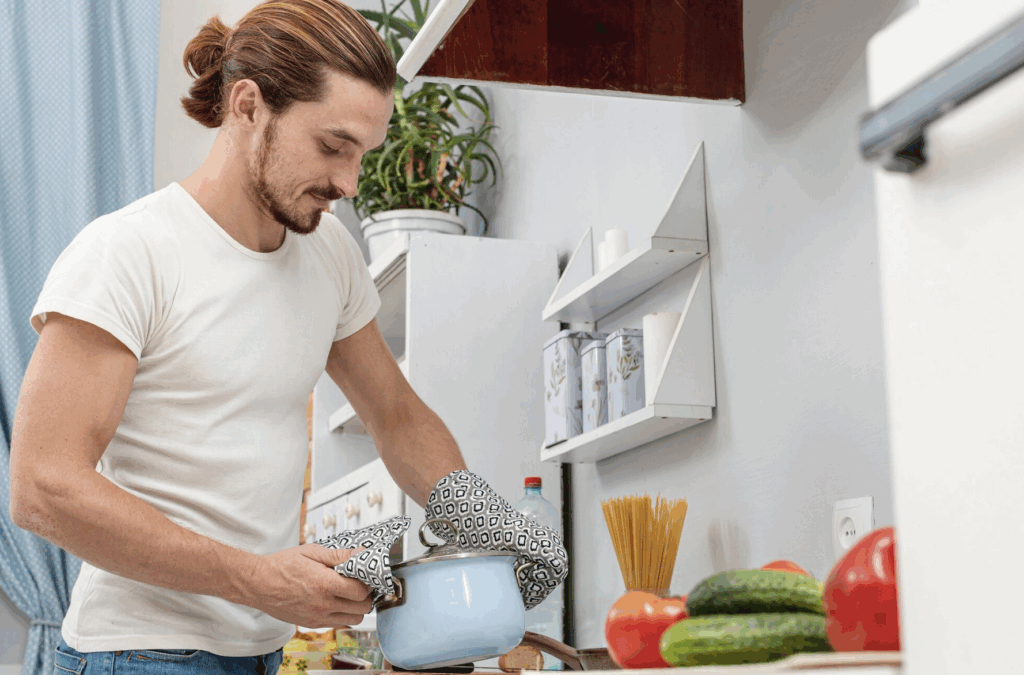
We rely on hot water each and every day — for washing dishes, showering, cleaning, and sometimes even for health remedies — yet most households don’t exploit its full potential. Whether you’re aiming to save energy, boost efficiency, or just simplify your life, these 10 clever hot water hacks will transform how you use it. By the way, if you’d like a deep dive into other “cooler” applications, check out these insightful hot water hacks for extra inspiration.
Pre‑heat with a kettle before running the tap
When you start with a kettle full of boiling water and pour a little into your basin or sink, you reduce the wait time and water waste while your hot tap kicks in. It’s a simple trick that also cuts down on energy wasted during the “warm-up” period.
- Pre‑heat with a kettle before running the tap
- Use a jug to pre-warm the washing machine
- Add hot water last to soup or stews
- Speed up dishwashing with a two‑basin setup
- Make your own sanitising spray
- Steam‑clean with boiled water
- De‑ice your freezer or drains
- Pre‑soak stained laundry
- Save energy with heat recovery
- Use hot water in your heat bag
- Bonus Tips & Best Practices
- Why these hacks matter
Use a jug to pre-warm the washing machine
Before running a load of laundry, pour in a jug of hot tap water (or water from a kettle) to boost the initial temperature. Many washing machines mix cold and hot, so this helps the machine reach the target temperature faster and more efficiently.
Add hot water last to soup or stews
When cooking soups or stews, use hot water for part of your liquid to shorten cooking time and retain heat — but wait until the end to add it, so you don’t overcook delicate ingredients.
Speed up dishwashing with a two‑basin setup
Fill one basin with hot (or boiling‑infused) water and washing liquid; use the second basin for rinsing with warm water. This temperature stratification keeps soaps more effective and cuts down on scrubbing.
Make your own sanitising spray
Mix one part very hot water with one part white vinegar plus a few drops of tea tree oil for a natural, germ-fighting spray. Use it on benches, drains, or surfaces (just ensure surfaces tolerate heat and vinegar first).
Steam‑clean with boiled water
Fill a bowl with boiling water, add a few drops of essential oil (like eucalyptus or lemon), and let it steam to loosen grime in ovens, microwaves or bathroom tiles — then wipe clean once cooled slightly.
De‑ice your freezer or drains
To defrost a mini‑freezer quickly, pour hot (not boiling) water over a cloth and press it against ice patches. Similarly, a hot‑water flush (with care) can help clear greasy clogs in drains. (Always check your plumbing tolerances before attempting.)
Pre‑soak stained laundry
Dissolve a scoop of enzyme powder or gentle bleach substitute in a bucket with hot water, then pre-soak stained items before washing. The heat helps activate stain‑fighting agents more effectively.
Save energy with heat recovery
If your household has the plumbing set‑up, use a simple heat exchanger or a “greywater” loop to harness leftover warmth from hot water drains (e.g. from shower drains) to preheat incoming cold water. It’s a more advanced approach, but yields long‑term savings.
Use hot water in your heat bag
Fill a sturdy, leak‑proof bottle with hot (but not boiling) water and wrap it in a towel to make a heat bag. Place it in the bed or on tight muscles for soothing warmth. You’ll be impressed by how long the warmth lasts — much better than an electric blanket in some cases.
Bonus Tips & Best Practices
– Mind the temperature: Always test your water to avoid scalding. In some plumbing setups, incoming hot water can reach dangerously high levels.
– Insulate your pipes: Simple foam insulation reduces heat loss, meaning hot water arrives faster at the tap.
– Regular maintenance: Flush your hot water system periodically to remove sediment, which improves efficiency.
– Use timers or thermostats: In off‑peak hours, heat only the amount of water you need — avoid keeping large volumes hot continuously.
Why these hacks matter
These clever adjustments and additions to your routine can lead to lower energy bills, less water waste, and a smarter, more eco‑friendly household overall. Hot water is already a staple utility — with a little ingenuity, it becomes a powerful tool in daily life.